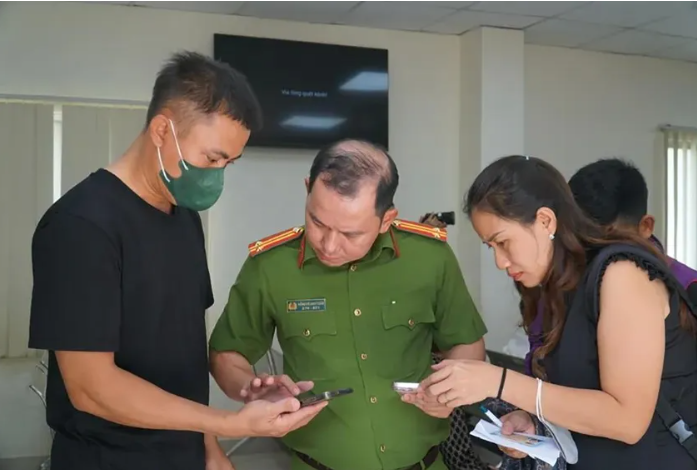Proposed Expansion of Residence Deregistration Cases
The Ministry of Public Security, as the drafting body, emphasized that revisions are necessary to streamline state apparatus restructuring and adapt to the two-tier local government system. According to the draft, residence is defined as citizens living at a lawful address within a commune-level administrative unit, with registration managed directly by local police (commune, ward, or special administrative units).
One key amendment addresses the residence registration of minors. The draft allows minors to register permanent residence at a lawful dwelling not owned by them when living with parents or guardians, without requiring consent from the household head or property owner. This aims to protect minors’ legitimate rights and interests while ensuring convenience in family reunification.

A notable addition is the proposal to expand cases where permanent and temporary residence registrations can be deleted. Specifically, registration would be canceled if a decision allowing an individual to restore Vietnamese nationality is later annulled. This aligns the Residence Law with amendments to the Law on Vietnamese Nationality.
The draft also refines provisions on updating civil status changes in the residence database, ensuring synchronization with the national population database. For lodging notifications, it proposes new obligations for vehicle owners or managers to report temporary stays of passengers or users, improving the timeliness and effectiveness of residence management.
While the National Defense, Security, and Foreign Affairs Committee largely agreed with these changes, some members urged caution, particularly on the provision allowing minors to register permanent residence, to avoid infringing on the housing rights of lawful property owners.
For the Law on Exit and Entry, the draft introduces a new rule that ordinary passports issued under expedited procedures will be valid for only one use and up to 12 months, non-renewable. This applies to cases such as lost passports, deportation orders, or urgent repatriations. The Government argued that limiting such passports to single-use prevents potential misuse.
The draft further adds grounds for revoking or invalidating passports: when a new passport has been issued, when personal details contain errors, or when the holder is subject to a wanted notice.
To simplify procedures, the draft removes the requirement to submit photocopies or originals of ID documents, replacing them with electronic verification via national ID cards or digital identity. This applies to various procedures, including issuing and renewing diplomatic, official, and ordinary passports both domestically and abroad.
The Government requested that the National Assembly give opinions and approve this draft law at its 10th session of the 15th Legislature.
Ý kiến bạn đọc
Những tin cũ hơn
GIỚI THIỆU VỀ CTY CP LUẬT NGUYỄN - LUẬT NGUYỄN GROUP
Từ những bước đi đầu tiên, Luật Nguyễn đã không ngừng nỗ lực để trở thành một trong những đơn vị tư vấn pháp lý hàng đầu tại Việt Nam, mang đến các giải pháp toàn diện, chuyên nghiệp và đáng tin cậy cho hàng ngàn khách hàng cá nhân và doanh nghiệp. LUẬT NGUYỄN - HÀNH TRÌNH XÂY DỰNG UY TÍN TỪ...
-
 Proposed Expansion of Residence Deregistration Cases
Proposed Expansion of Residence Deregistration Cases
-
 Sửa đổi quy định cư trú để phù hợp sắp xếp đơn vị hành chính
Sửa đổi quy định cư trú để phù hợp sắp xếp đơn vị hành chính
-
 Đề xuất đổi căn cước trực tuyến khi thay đổi thông tin do sắp xếp đơn vị hành chính
Đề xuất đổi căn cước trực tuyến khi thay đổi thông tin do sắp xếp đơn vị hành chính
-
 Proposal for Online ID Renewal After Administrative Unit Changes
Proposal for Online ID Renewal After Administrative Unit Changes
-
 Legal Action: The Right Path for Businesses Facing Online Defamation
Legal Action: The Right Path for Businesses Facing Online Defamation
- Đang truy cập75
- Hôm nay8,265
- Tháng hiện tại568,261
- Tổng lượt truy cập1,336,924
-
 Cập nhật địa chỉ trụ sở Công an cấp xã tại TPHCM sau sáp nhập
Cập nhật địa chỉ trụ sở Công an cấp xã tại TPHCM sau sáp nhập
-
 Từ ngày 1.7: Cách ghi địa chỉ trên hóa đơn điện tử thay đổi
Từ ngày 1.7: Cách ghi địa chỉ trên hóa đơn điện tử thay đổi
-
 Địa chỉ 19 Tòa án nhân dân (TAND) khu vực TP.HCM sau sáp nhập
Địa chỉ 19 Tòa án nhân dân (TAND) khu vực TP.HCM sau sáp nhập
-
 Hóa đơn GTGT xuất cho khách cá nhân có bắt buộc ghi CCCD?
Hóa đơn GTGT xuất cho khách cá nhân có bắt buộc ghi CCCD?
-
 Thông tư 40/2021 :Quy định về nghĩa vụ thuế đối với hộ kinh doanh
Thông tư 40/2021 :Quy định về nghĩa vụ thuế đối với hộ kinh doanh








